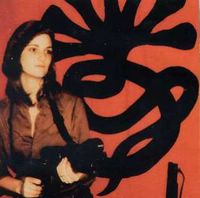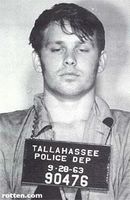"Eternal Sunshine of the Spotless Mind": A Review
OK, this is an old review but for the purposes of archiving it, indulge me the post. Especially with the slew of movie awards presentations ahead of us, let me re-sing the praises of one of (in my humble opinion) the finest films of this year, Eternal Sunshine of the Spotless Mind. ...
Reflections on the nature of love, relationships and reality itself pulsate through “Eternal Sunshine of the Spotless Mind,” yet this remarkable film is no mere art-house diversion. Intelligent and funny, it is essentially a classic love story, albeit one with a twist: Boy meets girl, boy loses girl, boy erases all memory of girl.
Jim Carrey stars as the gangly and painfully shy Joel Barish, whose world comes crashing to a halt when he breaks up with Clementine Kruczynski (Kate Winslet), a motormouth bookstore clerk with dyed blue hair and a penchant for potato dolls. Soon Joel discovers that Clementine has utilized the services of a company called Lacuna Inc. to have all traces of their two-year relationship erased from her memory.
Heartbroken, Joel visits Dr. Mierzwiak (Tom Wilkinson), the brains behind Lacuna, and eventually decides to undergo the treatment himself. When Joel inquires whether the memory erasure can cause brain damage, the doctor replies, “Technically speaking, the procedure is brain damage.”
That’s the jumping off point for a literal head trip courtesy of director Michel Gondry and screenwriter Charlie Kaufman (“Being John Malkovich,” “Adaptation”). While Joel sleeps soundly in his apartment, a trio of pot-smoking Lacuna employees (Mark Ruffalo, Elijah Wood and Kirsten Dunst) begins the memory scrub of Joel’s mind.
We experience his relationship with Clem in revere order. First to go are the ugly fights precipitating the breakup, but as Joel re-experiences the quiet joys of their past – catching a train at Grand Central Station, eating Chinese takeout, exchanging secrets in bed – he changes his mind. The bad times don’t invalidate the good, Joel decides, and so he squirrels away Clementine in memories that have nothing to do with her, an effort to keep her from being lost and gone forever.
The story ricochets from reality to fantasy and through a web of memories, but this is not weirdness for its own sake. Here, Kaufman eschews the aloof irony that ultimately hobbled “Adaptation” and instead explores the richness of ordinary human experience. Beneath this cinematic sleight of hand is a love story propelled by a beating heart.
And a brain. Gondry and Kaufman use the premise of Lacuna to springboard into some meaty questions: Does the past exist if no one remembers it? Can memories be co-opted? What makes a relationship good or bad? Is love a matter of fate?
Thankfully, the filmmakers don’t offer answers. Despite its almost mind-bending cleverness, “Eternal Sunshine” doesn’t strike a false note or descend into metaphysical mumbo-jumbo. Gondry employs a play-it-straight rawness, using handheld camerawork and naturalistic lighting for a documentary-like feel.
The movie is also grounded by its principal actors. An impressively understated Carrey gives his best performance to date, and Winslet is every bit his equal. The supporting cast also shines, with Wood particularly memorable as a creepy Lacuna tech.
The genius of “Eternal Sunshine” is that it salvages the healing power beneath even the most scabrous wounds of failed romance. And Kaufman demonstrates one more time why he is that rarest of Hollywood creatures: a celebrated screenwriter.























0 Comments:
Post a Comment
<< Home